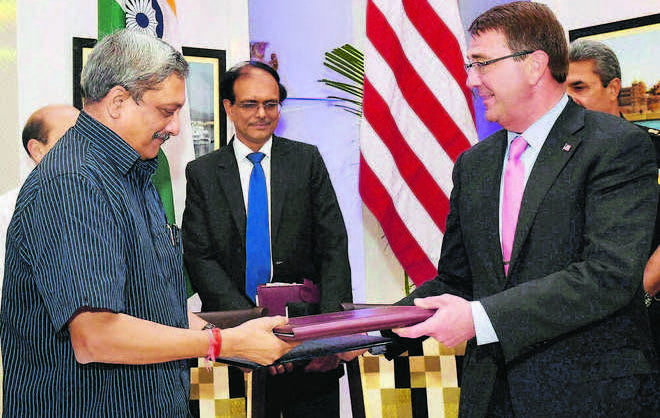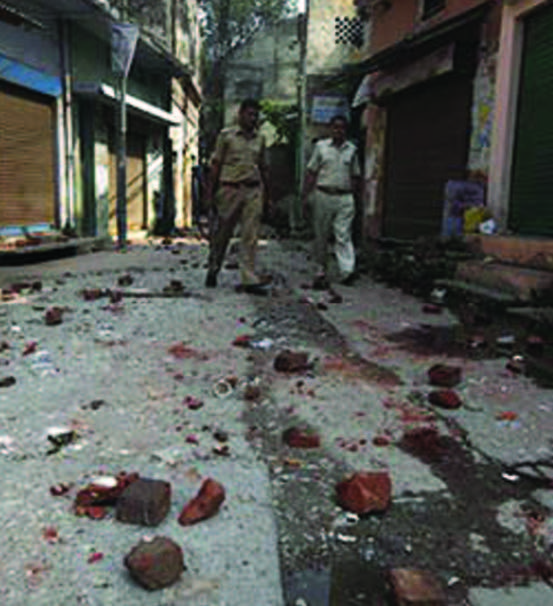
NEW DELHI(TIP): Three days after he returned from his foreign trip to face embarrassing allegations of sexual harassment, Union Minister of State for External Affairs MJ Akbar on Wednesday, October 17, resigned from his post, maintaining that he would challenge the false accusations against him.
Akbar has slapped a criminal defamation case against Priya Ramani, the first journalist who publicly named and shamed the junior minster. The hearing in the defamation case is scheduled to come up for hearing on Thursday in the Patiala House court here.
Prime Minister Narendra Modi accepted Akbar’s resignation after which it was sent to President Ram Nath Kovind. Later, the President also accepted his resignation from the council of ministers.
Though the pressure was high, both on him and the government, from women groups and also saffron ideologues, sources said the final decision was taken after “carefully testing the waters” and when it eventually became clear that his presence was causing “irreparable harm” to the reputation of the BJP, in the country as well as abroad.
Akbar has threatened “appropriate legal action” against those who levelled “wild and baseless allegations” against him, but that did not stop survivors to come out in public about their horror tales. Quite clearly, he was asked to put in his papers by Prime Minister Narendra Modi after it became clear that it was neither morally nor politically tenable for him to continue in the high post, especially given his profile.
PM Modi, as they say, is also quite particular about perceptions about him in foreign countries.
As clamor for action against Akbar from his former women colleagues grew, there were worries in the BJP about the allegations damaging the party’s “pro-women” image ahead of elections to five states. While the BJP and government functionaries maintained a stoic silence, it was perhaps the first time in his tenure that PM Modi faced the piquant Catch-22 situation when either way it would have been detrimental for the image of his government.
However, his presence in the government had become far too “embarrassing for PM Modi” though he continues to be a Rajya Sabha member and also a member of the BJP.
For the BJP, holding on to Akbar would have served no purpose given his lack of mass-based appeal. Holding on to him would have come at a cost, the price of which it may have had to pay with a dent in its “pro-women” image in the run-up to the 2019 Lok Sabha in urban pockets. It can now take a moral high ground, safely.
In a statement, Akbar said, “Since I have decided to seek justice in a court of law in my personal capacity, I deem it appropriate to step down from office and challenge false accusations levied against me, also in a personal capacity. I have, therefore, tendered my resignation from the office of Minister of State for External Affairs. I am deeply grateful to the Prime Minister Shri Narendra Modi and to the External Affairs Minister Smt. Sushma Swaraj for the opportunity they gave me to serve my country.”
The Rashtrapati Bhawan said later on Wednesday that President Ramnath Kovind had accepted Akbar’s resignation.
“The President of India, as advised by the Prime Minister, has accepted the resignation of Shri M. J. Akbar from the Union Council of Ministers, with immediate effect, under clause (2) of Article 75 of the Constitution.,” a communiqué from the President’s office said.
Reacting to Akbar’s resignation, Priya Ramani said, “As women we feel vindicated.”
“I look forward to the day when I will also get justice in court,” she tweeted.
As women we feel vindicated by MJ Akbar’s resignation.
However, this raises questions as to why PM Modi did not intervene earlier? Why was Akbar allowed to complete his overseas trip to Nigeria and Equatorial Guinea last week instead of being recalled as the #MeToo storm hit? And why did the government wait it out for Akbar to threaten accusers with legal action and sue Priya Ramani in court?
It is learnt that what also made the government jittery was the fact that despite the legal case against Priya Ramani, another woman journalist Tushita Patil penned an article alleging sexual abuse against Akbar dating back to 1992-1993 when she was a rookie reporter and he a prominent journalist and editor.
Some 20 women also in a statement joined hands with Ramani and asked the court to hear them out in the defamation case while two former male colleagues and journalists also came out in support of the reported #MeToo victims.
(Source: Tribune, India)





Be the first to comment